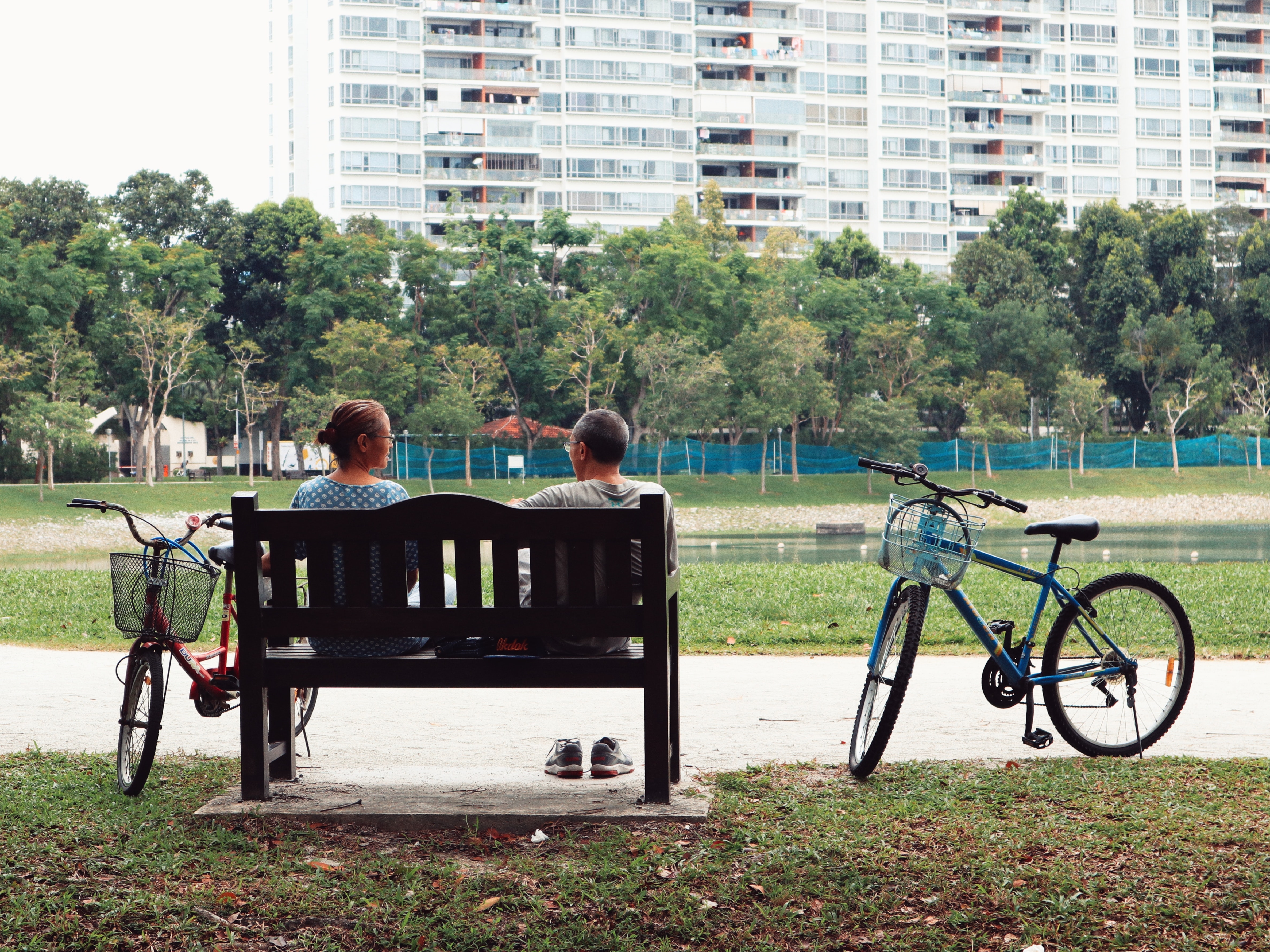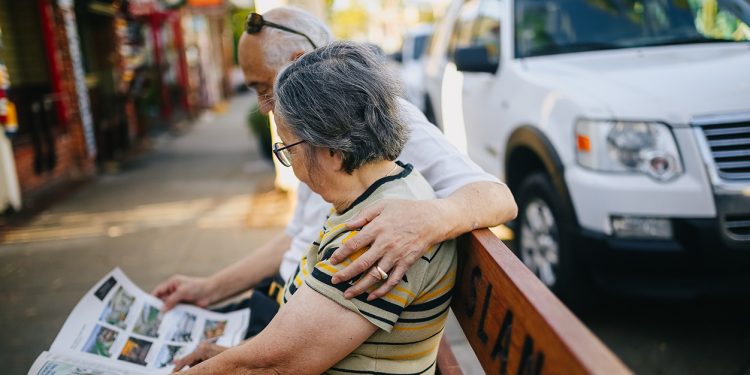If you are currently a member of the workforce, chances are you have spent a little (or a lot of) time daydreaming about throwing off the shackles of the nine-to-five grind and revelling in the leisure of your golden years. But is the much-coveted comfortable retirement a real possibility? Or is it merely a pipe-dream?
Many of us are all too aware of the sky-high cost of living in Singapore. This tiny island consistently ranks among the top 10 of the world’s most expensive cities – to cite just one example as an illustration, the outlay for a four-room HDB flat here could buy you a sizeable landed property overseas. And when you no longer have a steady source of income, coupled with the erosive effects of inflation, and the increase in healthcare expenditure linked to ageing, the realisation, not to mention maintenance, of your desired retirement lifestyle may come at a high price.
The cost of a comfortable retirement
A 2019 study by a team of researchers at the Lee Kuan Yew School of Public Policy deduced that a single senior citizen aged 65 and above would need a minimum of S$1,379 (US$1,014) per month to meet a basic standard of living, while an elderly couple would need a monthly minimum of SS2,351. These figures cover items and services such as housing, utilities, transport, food etc., but do not include healthcare and so-called extravagances like private vehicles and air-conditioning. A comfortable retirement, on the other hand, should allow a person not just to survive, but also to thrive.
“To me, a comfortable retirement means that I am able to continue to live [as I did] before i.e. no change or little change in my standard of living,” says Mae Ong, a former insurance advisor who retired in 2019.
“S$1,379 may be [enough] for [a] no-frills, no-fuss lifestyle. [You would] need to be very frugal with no [outstanding] mortgage loan,” she says. “[But] this amount is not viable for me, because [in order] to live on S$1,379 a month, I [would] need to make a lot of changes to my lifestyle.”
A new “Life Goals” survey by OCBC Bank and Straits Times Invest, meanwhile, reckons the monthly expenses of a retiree who lives in an HDB flat, takes public transport and eats homecooked food to be S$2,300. A retiree who owns an HDB flat, hires part-time domestic help and travels around Southeast Asia would need S$2,900; while someone who lives in private property, hires full-time domestic help, and dines at Michelin-starred restaurants and hipster cafes would require S$5,200, every month.
Whichever calculation you may feel is reasonable, however, it still adds up to at least S$16,500 a year. Given that the statutory retirement age is 62 and the average life expectancy of Singaporeans is approximately 84 years, even a simple retirement lifestyle would entail a nest egg of at least S$364,000.
The dangers of inadequate preparation
Besides the prohibitive cost of a comfortable retirement, it seems many Singaporeans are ill-equipped for life after employment for a variety of reasons, such as misjudging the reality of retirement, underestimating the funds needed for retirement, putting off planning for retirement and more.
This lack of preparation has been borne out by multiple studies. The 2020 OCBC Financial Wellness Index, for instance, highlights that four in five Singaporeans underestimate the amount of savings they would need to achieve their ideal retirement lifestyle by an average of 32 per cent, while three in four Singaporeans are not on track with their retirement plans.
Additionally, a 2021 survey by digital wealth management platform Syfe, which quantifies retirement readiness on a numeric scale, where a score of 100 and above indicates satisfactory levels of preparedness, reveals that 61 per cent of Singaporeans are inadequately prepared for retirement (scoring below 100), while 38 per cent are significantly behind on their retirement preparations (scoring below 70).
The consequences of such an oversight could put paid to your long-held hopes of taking it easy, and living it up in your autumn years.

A survey commissioned by Manulife earlier this year provides some insight into the financial health of Singaporean retirees. Based on the poll results, it appears that the majority of senior citizens regret not starting to save earlier and not saving up more for their retirement. One in five respondents feel dissatisfied with their retirement funds, and two in three respondents wish that they had begun planning financially for retirement earlier in their careers. Hence, one in three senior citizens continue to work beyond retirement age in order to supplement their savings. Unfortunately, 25 per cent of respondents also say their standard of living has declined post-retirement, and express a lack of confidence about their ability to spend the rest of their retirement in comfort.
The pandemic’s impact on retirement
Throw a once-in-a-century global pandemic into the mix, and that dream retirement may seem to be slipping further and further from your grasp.
According to experts at The New School’s Retirement Equity Lab (ReLab), the size of the retired population in the United States expanded beyond its normal trend by an extra 1.7 million people, in 2020. A taste of life outside the office, a booming real estate market and record stock values could have spurred a fortunate few to take the plunge earlier than originally envisioned. But for others, particularly those on the lower rungs of the income ladder, it appears that early retirement was not so much a choice as an inevitability.
The authors of the ReLab study discovered that the retirement rate for non-graduate workers aged 55 to 64 and 65 and over rose by 0.8 and 1.1 percentage points, respectively, over the pandemic period. Moreover, among people with incomes at or below the U.S. median, 55 per cent of retirements were involuntary. On top of the Covid-19 recession, non-college-educated mature workers face lower job security and worse employment prospects than their college-educated peers, forcing many into early and unexpected retirement.
It would not be surprising if the same phenomenon were observed here in Singapore, although the scarcity of data at present makes it difficult to corroborate. What is certain is that, as with almost every aspect of our lives, Covid-19 has thrown retirement plans into disarray. A canvass by St. James’s Place Wealth Management found that 56 per cent of local respondents had to dip into their nest egg to contend with the financial repercussions of the coronavirus crisis, with 20 per cent saying they had to take a considerable chunk out of their retirement funds on account of the economic downturn.
As the adage goes, however, every dark cloud has a silver lining. Yes, even Covid-19. Apparently, the pandemic has changed the way Singaporeans manage their money – for the better. More than 70 per cent of respondents in the Syfe survey agree that Covid-19 has prompted them to take immediate action to plan for their financial future, a matter they had hitherto overlooked.
Similarly, the latest edition of the Manulife Asia Care Survey evinces an uptick in awareness of and attention to retirement planning, with 74 per cent of Singaporeans stating that retirement planning has grown in importance to them since the onset of the coronavirus outbreak. Furthermore, 2020 witnessed a nearly 40 per cent jump in the number of Central Provident Fund (CPF) members who made contributions to their own, or their parents’ accounts under the Retirement Sum Topping-Up Scheme. The CPF Board says this substantial increase demonstrates that Singaporeans are “saving and planning for their own and loved ones’ retirement more than ever, even in the midst of the Covid-19 pandemic.”
Strategies for a comfortable retirement
With all that said, what tangible steps can you take to turn your retirement dream into a reality?
Save early, save often
Do not fall into the trap of thinking that your retirement is too far off to be a financial priority. No matter your age, setting aside a portion of your paycheck for retirement is not an option, but a must.
And the sooner you begin saving, the bigger your retirement kitty will be when you do retire, thanks to the power of compound interest (CI). Put simply, CI is the interest you earn on your principal amount as well as on the interest you keep accumulating. In other words, it is interest on interest. CI accelerates the growth of your savings over time as you earn interest on increasingly larger balances. The earlier you kickstart your retirement fund, therefore, the longer your money can compound, and the greater the returns it would generate.
Tay Choon Mong, a financial planner with decades of experience in the field, recommends earmarking at least 10 to 30 per cent of your income for building up your nest egg. He also encourages creating an emergency fund that can cover your living expenses for a minimum of six months, preferably longer, so that you would not have to tap your retirement savings in the event of unexpected job loss, or another unforeseen crisis.
Stick to a budget
A crucial step in achieving retirement security (and indeed, financial security in general) is to always live on less than you make. If your personal expenditure lags behind your income growth, you would have extra cash to funnel into your retirement pot.
“Please spend less than you earn,” urges recent retiree Gan CS. “I’ve noticed that, as people receive a promotion or a pay jump, they tend to spend even more.”
She adds, “I think it’s important to track your expenses and stick to a budget.”
If you do not know where to start, try the 50/30/20 budget rule popularised by US Senator Elizabeth Warren. It is realistic, effective and straightforward: just split your income between your needs, your wants and your savings, according to a 50:30:20 ratio. That means apportioning half of your take-home pay to necessities, such as mortgage payments, groceries, utilities, healthcare, insurance, debt payments and the like. The next 30 per cent should go towards non-essential expenses, such as dining out, gym memberships, video streaming subscriptions, vacations etc. The final 20 per cent should be allocated to financial goals, such as your retirement fund, emergency fund and investments.
Additionally, Mr Tay advises living below your means when it comes to high-ticket items like property, private vehicles and even your progeny: “For example, if you can afford a five-room HDB flat, then you should buy a four-room HDB flat,” he says. “[You should] try to avoid buying a car [as well], as it is a big-ticket item that [can] drain your finances.”
He adds, “And if you are married, [you should] try to have either one child or no children, as bringing up children [in Singapore] is very expensive, especially [with regard to] tuition costs.”
Develop passive income streams
Imagine if you could just sit back, relax and still see your bank balance swell. Sound too good to be true? With passive income, that is not only possible, but doable.
Passive income refers to a cash stream that involves little daily effort to maintain. Besides the obvious perk of having extra dosh at your disposal, passive income diversifies how you make money, thereby affording you enhanced financial stability and freedom of time to pursue your real passions. What is more, unlike the paycheck from your 9-to-5 job, passive income is not limited by your age or your health, which means you can continue to collect a pay envelope even past retirement.
There are plenty of ways to generate passive income. Too many, in fact, to list them all down here. Potential sources of passive income you can consider include investing in dividend-yielding stocks and bonds, purchasing retirement annuity plans, renting out property, writing e-books, blogging, dropshipping etc.

Do bear in mind, however, that passive income is not a something-for-nothing, get-rich-quick scheme. Building a profitable portfolio requires an upfront investment of time, money and effort. But if you play your cards right, you could reap the rewards of a steady cash flow well into your golden years.
Find a sense of purpose
We frequently envisage life in retirement as a never-ending vacation: no schedule, no commitments, no worries. Just doing whatever you want, going wherever you want, whenever you want. We hate to burst your bubble, but, spoiler alert, retirement is not always all fun and games.
After the euphoria of ‘I’m free! I don’t have to go to work today!’ wears off, retirees often experience feelings of boredom, inadequacy and disenchantment, due to the destabilising effect that can accompany the sudden loss of meaning, identity, routine and social interaction. That is why finding your purpose in life outside of and after employment is such a vital facet of retirement planning.
“I think that people tend to focus a lot on the financial [side of retirement] and very little on what they want to accomplish in the second half [of their lives],” says Ms Gan. She adds that she found a course called Halftime very helpful in preparing her for the next season of life, and in facilitating a smooth transition from employment to retirement.
“I think that any such course, whether secular or religious, can be beneficial [to people contemplating retirement],” she suggests.
Observers also suggest exploring volunteer work, fostering social connections, picking up new hobbies and enrolling in courses as avenues to discover a sense of purpose in retirement.
For instance, in the two years since she left the workforce, Ms Gan has not only obtained the Workforce Skills Qualifications Advanced Certificate in Learning and Performance, she has also found fulfilment in spending time with her loved ones, tutoring refugee children in Malaysia and Timor Leste, mentoring young adults in church and exploring nature parks in Singapore.
Health matters
The importance of good health to a successful retirement cannot be overstated. After all, it would be quite a shame if you spent decades slogging away to save up enough for retirement, only to find you cannot fully enjoy the fruits of your labour, because you are hampered by health issues.
“To me, quality of life is key,” agrees Ms Gan. “You can have all the money in the world, but if your health is bad, I don’t think you will enjoy your retirement.”
Exercising regularly, adopting a balanced diet and getting enough sleep can lower the risk of heart disease, stroke, diabetes, dementia, high blood pressure and other chronic illnesses, thus protecting your mobility and enabling you to continue to tick things off your bucket list. Not to mention that maintaining good physical health helps to boost your mental and emotional well-being, and saves you thousands of dollars in medical bills.

You do not have to hit the gym or pound the pavement to stay in shape, either. Ms Ong says playing tennis and badminton, attending Zumba classes, going for walks and learning the ukulele help keep her physically active and mentally engaged, while Ms Gan tries to reach a minimum of 10,000 steps every day as part of a healthy lifestyle.
Mr Tay offers a final piece of advice: “[It’s important to] have realistic expectations [about retirement]. You should not compare your lifestyle with [that of] others, and you need to [cultivate] a strong mental attitude so as not to be influenced by other people, social media and advertisements,” he says.














